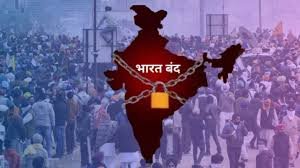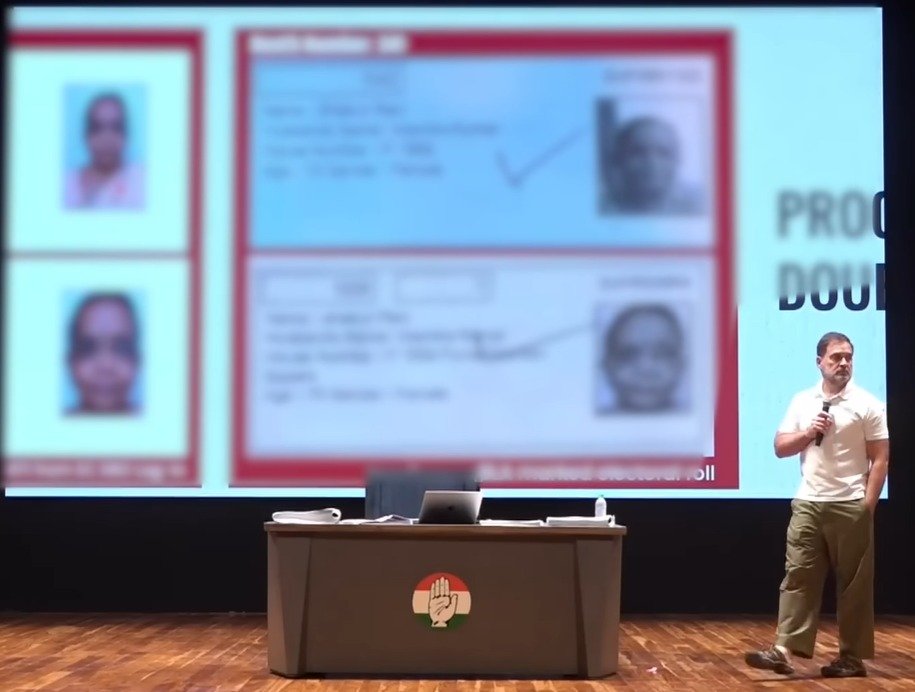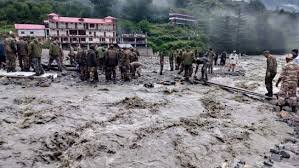
Bharat Bandh 2025: 25 crore workers to go on nationwide strike
New Delhi, July 9, 2025: More than 25 crore workers across the country have participated in the 'Bharat Bandh' today, July 9, 2025. The nationwide strike has been called against the policies of the central government, which has had a major impact on banking, postal services, transport and other essential services. Ten central trade unions and their cooperatives have called for the strike, expressing strong displeasure against the "anti-worker, anti-farmer and pro-corporate" policies of the government.
Reason for the strike
The trade unions have called the strike against the government's new labour laws, privatisation of public sector undertakings and the rising problem of unemployment. Amarjeet Kaur of the All India Trade Union Congress said, "More than 25 crore workers have participated in the strike. Farmers and workers from rural areas have also joined the movement." Apart from this, the demand for a minimum wage of Rs 26,000 and the old pension scheme has also come up strongly during the strike.
Sectors affected
The strike is affecting several important sectors including banking, postal services, coal mines, factories and state transport services. Harbhajan Singh Sidhu of Hind Mazdoor Sabha said, "This strike will have a major impact on banking, postal and transport services." Although the bank employees' unions have not officially announced a bandh, employees of public and cooperative banks are likely to participate in the strike, which may cause disruptions in banking services.
Services affected:
Banking: Bank branches and customer services are likely to be affected.
Postal services: Services disrupted as many postal employees join the strike.
Transport: Public buses, taxis and app-based cab services affected, roads blocked and traffic jams due to protests.
Power sector: Power supply affected as over 27 lakh electricity employees join the strike.
Schools, colleges and private offices
State governments have not declared a holiday for schools and colleges on July 9, so they are likely to remain open. However, disruptions in transport services may affect regular operations in some areas. Private offices will also remain open, but local protests may cause travel disruptions.
Impact on rail services
Railway employees' unions have not officially announced a strike, but protests near railway stations are likely to affect some local train services. Passengers have been advised to check their train timetables.
Impact across the country
Kolkata: Kolkata police remove workers blocking roads, affecting public transport.
Chennai: Left activists protest in Gundi.
Bengaluru: Banking services affected, postal services also disrupted.
Hyderabad: Public services affected due to participation of lakhs of workers.
Puducherry and Tamil Nadu: Complete shutdown, educational institutions likely to remain closed.
Government and police response
Police lathicharged protesters in some areas, particularly in Howrah, where Left groups tried to block roads. Heavy police deployment has been made at key locations to ensure that roads and public transport remain open.
Demands and outlook
Labour unions have submitted a charter of 17 demands to the government, including repeal of new labour laws, hike in minimum wages and halt to privatisation. The strike is being seen as a significant milestone in the fight for labour rights, job creation and economic justice.
This widespread agitation by workers and farmers has once again highlighted the need for dialogue between the government and trade unions. It will be important to see how the outcome of Bharat Bandh 2025 and its repercussions affect the political and economic landscape of the country in the coming days.
For more information, stay tuned for local news and updates.
New Delhi, July 9, 2025: More than 25 crore workers across the country have participated in the 'Bharat Bandh' today, July 9, 2025. The nationwide strike has been called against the policies of the central government, which has had a major impact on banking, postal services, transport and other essential services. Ten central trade unions and their cooperatives have called for the strike, expressing strong displeasure against the "anti-worker, anti-farmer and pro-corporate" policies of the government.
Reason for the strike
The trade unions have called the strike against the government's new labour laws, privatisation of public sector undertakings and the rising problem of unemployment. Amarjeet Kaur of the All India Trade Union Congress said, "More than 25 crore workers have participated in the strike. Farmers and workers from rural areas have also joined the movement." Apart from this, the demand for a minimum wage of Rs 26,000 and the old pension scheme has also come up strongly during the strike.
Sectors affected
The strike is affecting several important sectors including banking, postal services, coal mines, factories and state transport services. Harbhajan Singh Sidhu of Hind Mazdoor Sabha said, "This strike will have a major impact on banking, postal and transport services." Although the bank employees' unions have not officially announced a bandh, employees of public and cooperative banks are likely to participate in the strike, which may cause disruptions in banking services.
Services affected:
Banking: Bank branches and customer services are likely to be affected.
Postal services: Services disrupted as many postal employees join the strike.
Transport: Public buses, taxis and app-based cab services affected, roads blocked and traffic jams due to protests.
Power sector: Power supply affected as over 27 lakh electricity employees join the strike.
Schools, colleges and private offices
State governments have not declared a holiday for schools and colleges on July 9, so they are likely to remain open. However, disruptions in transport services may affect regular operations in some areas. Private offices will also remain open, but local protests may cause travel disruptions.
Impact on rail services
Railway employees' unions have not officially announced a strike, but protests near railway stations are likely to affect some local train services. Passengers have been advised to check their train timetables.
Impact across the country
Kolkata: Kolkata police remove workers blocking roads, affecting public transport.
Chennai: Left activists protest in Gundi.
Bengaluru: Banking services affected, postal services also disrupted.
Hyderabad: Public services affected due to participation of lakhs of workers.
Puducherry and Tamil Nadu: Complete shutdown, educational institutions likely to remain closed.
Government and police response
Police lathicharged protesters in some areas, particularly in Howrah, where Left groups tried to block roads. Heavy police deployment has been made at key locations to ensure that roads and public transport remain open.
Demands and outlook
Labour unions have submitted a charter of 17 demands to the government, including repeal of new labour laws, hike in minimum wages and halt to privatisation. The strike is being seen as a significant milestone in the fight for labour rights, job creation and economic justice.
This widespread agitation by workers and farmers has once again highlighted the need for dialogue between the government and trade unions. It will be important to see how the outcome of Bharat Bandh 2025 and its repercussions affect the political and economic landscape of the country in the coming days.
For more information, stay tuned for local news and updates.
Reason for the strike
The trade unions have called the strike against the government's new labour laws, privatisation of public sector undertakings and the rising problem of unemployment. Amarjeet Kaur of the All India Trade Union Congress said, "More than 25 crore workers have participated in the strike. Farmers and workers from rural areas have also joined the movement." Apart from this, the demand for a minimum wage of Rs 26,000 and the old pension scheme has also come up strongly during the strike.
Sectors affected
The strike is affecting several important sectors including banking, postal services, coal mines, factories and state transport services. Harbhajan Singh Sidhu of Hind Mazdoor Sabha said, "This strike will have a major impact on banking, postal and transport services." Although the bank employees' unions have not officially announced a bandh, employees of public and cooperative banks are likely to participate in the strike, which may cause disruptions in banking services.
Services affected:
Banking: Bank branches and customer services are likely to be affected.
Postal services: Services disrupted as many postal employees join the strike.
Transport: Public buses, taxis and app-based cab services affected, roads blocked and traffic jams due to protests.
Power sector: Power supply affected as over 27 lakh electricity employees join the strike.
Schools, colleges and private offices
State governments have not declared a holiday for schools and colleges on July 9, so they are likely to remain open. However, disruptions in transport services may affect regular operations in some areas. Private offices will also remain open, but local protests may cause travel disruptions.
Impact on rail services
Railway employees' unions have not officially announced a strike, but protests near railway stations are likely to affect some local train services. Passengers have been advised to check their train timetables.
Impact across the country
Kolkata: Kolkata police remove workers blocking roads, affecting public transport.
Chennai: Left activists protest in Gundi.
Bengaluru: Banking services affected, postal services also disrupted.
Hyderabad: Public services affected due to participation of lakhs of workers.
Puducherry and Tamil Nadu: Complete shutdown, educational institutions likely to remain closed.
Government and police response
Police lathicharged protesters in some areas, particularly in Howrah, where Left groups tried to block roads. Heavy police deployment has been made at key locations to ensure that roads and public transport remain open.
Demands and outlook
Labour unions have submitted a charter of 17 demands to the government, including repeal of new labour laws, hike in minimum wages and halt to privatisation. The strike is being seen as a significant milestone in the fight for labour rights, job creation and economic justice.
This widespread agitation by workers and farmers has once again highlighted the need for dialogue between the government and trade unions. It will be important to see how the outcome of Bharat Bandh 2025 and its repercussions affect the political and economic landscape of the country in the coming days.
For more information, stay tuned for local news and updates.

.jpg)
















